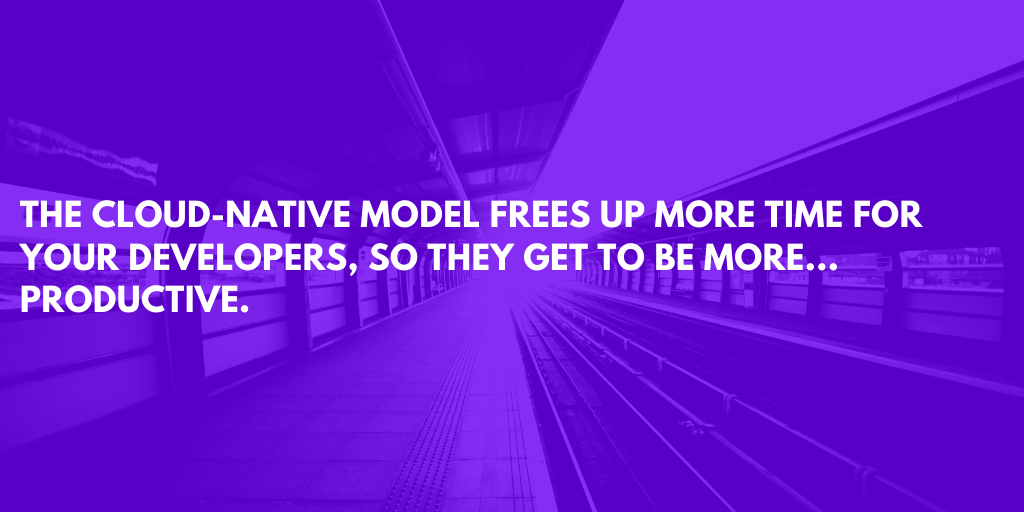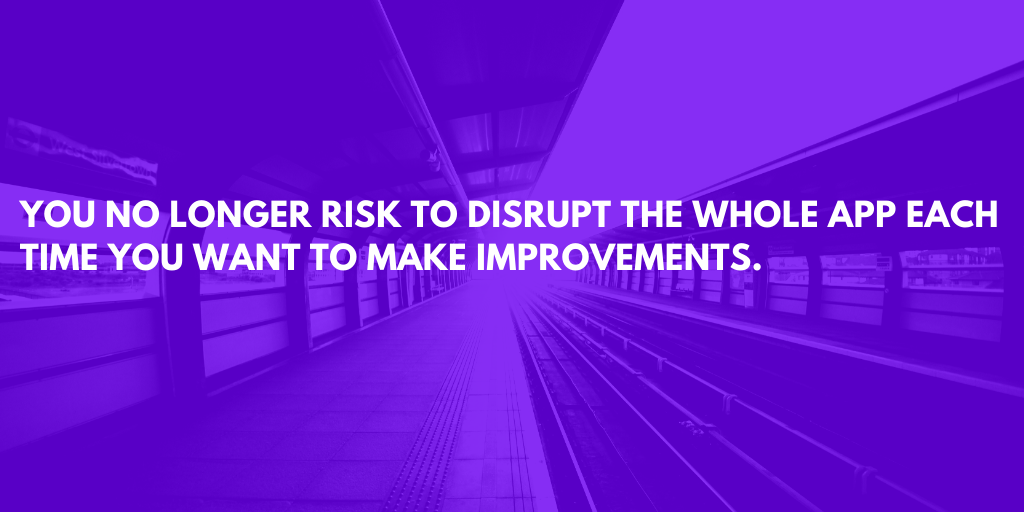
We’re excited to hear your project.
Let’s collaborate!

For it all comes down to this: what's the return that you'd get from switching to this new way of developing applications?
Why cloud-native apps?
How does migrating from cloud-hosted to cloud native applications translate into clear benefits for you? For your own business?
We've listed them, then... shortlisted them to the 6 biggest benefits that you can expect from developing cloud native apps.
Or, if you wish, the top 6 reasons why you'll want to use a cloud-native architecture from now on.
They're collections of independent, loosely coupled microservices, each one performing a single service or business function.
Unlike the traditional "monolithic" app architecture, where you have a single... block. So that whenever you needed to apply even a small change, you had to interrupt the entire app.
And it's precisely this intrinsic constraint of the monolithic approach — translating into limited scalability and flexibility — that has made the cloud-native model so "tempting":
Why cloud-native apps?
Due to their high availability:
You get to make real-time changes to your applications... on the fly.
... to respond to users' expectations of specific new features and functionalities faster than with the traditional app development model.
"Continuous improvement" is the key phrase here:
You're free to add and roll back new features and enhance its performance... constantly.
On the go.
And this is another one of the key cloud native application benefits.
The cloud-native architecture:

The cloud-native approach enables you to scale your resources and comply with user demand way faster than the monolithic approach:
You get to bring new features online — requested by your users — more quickly. To roll out changes and start marketing your app much faster.
In short, you get to be more responsive to user demand and more relevant with the updates you make to your app in… real time.
From all the cloud native applications advantages, cost-savings must be the most tangible one.
And it’s pretty obvious if you come to think of it:
Since the cloud-native approach to developing applications allows you to build and release them much faster, you’re practically left with more time. More time to focus on your other revenue-generating tasks.
Why cloud native applications?
Because you can minimize downtime when you need to update your app.
Cloud native applications run on both public and private platforms without you being forced to make any major changes.
For “flexibility” (along with “efficiency” and “high availability”) is another word for cloud-native.
It’s simple:
You get to innovate faster and to react to users’ changing needs and trends... faster.
Do you already have an app idea and you just need the right team to, ask the right questions, grasp your vision, and… make it happen?
Just drop us a line, let’s hear all about it and let's... build it!
Image by Ashish Bogawat from Pixabay

We’re excited to hear your project.
Let’s collaborate!